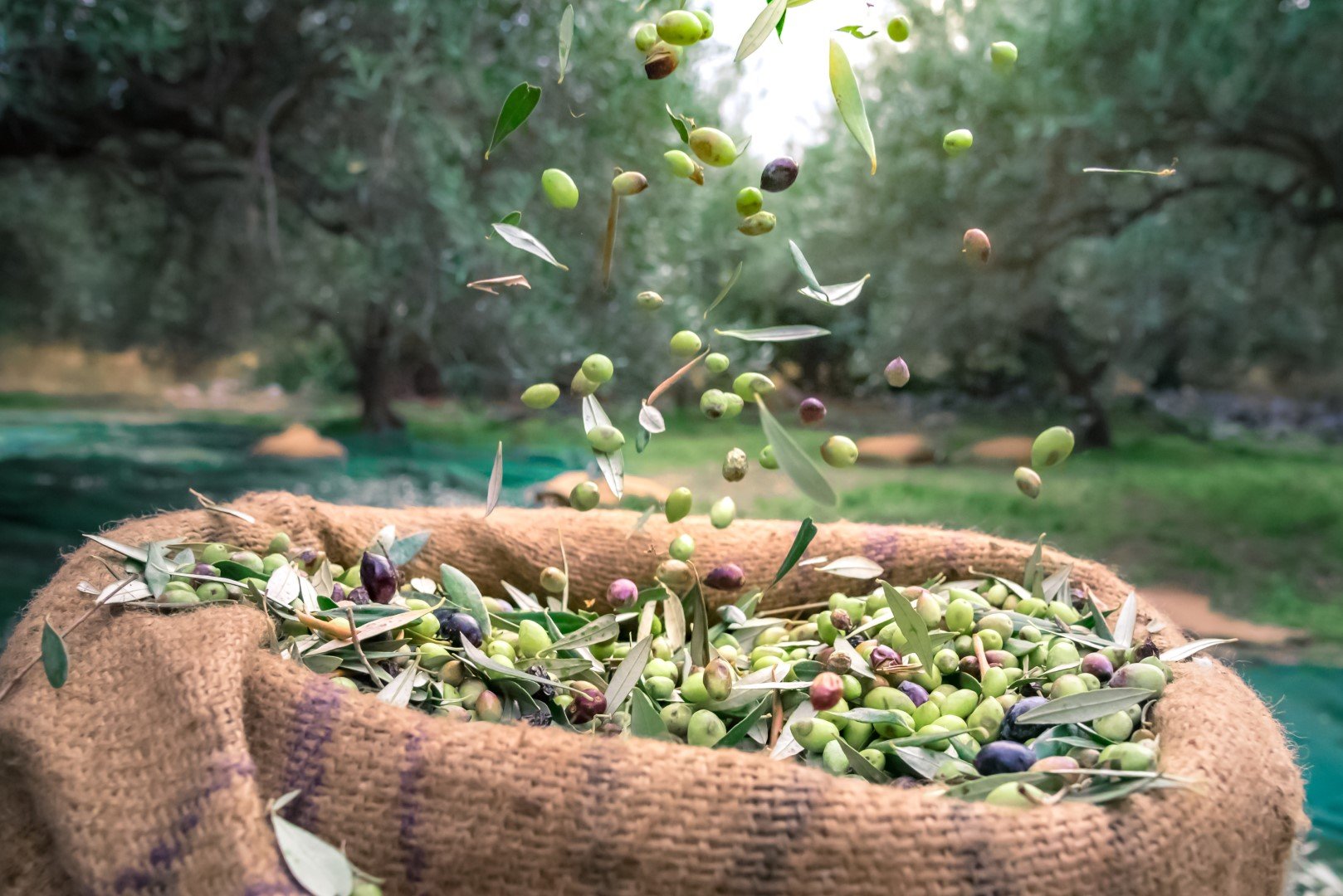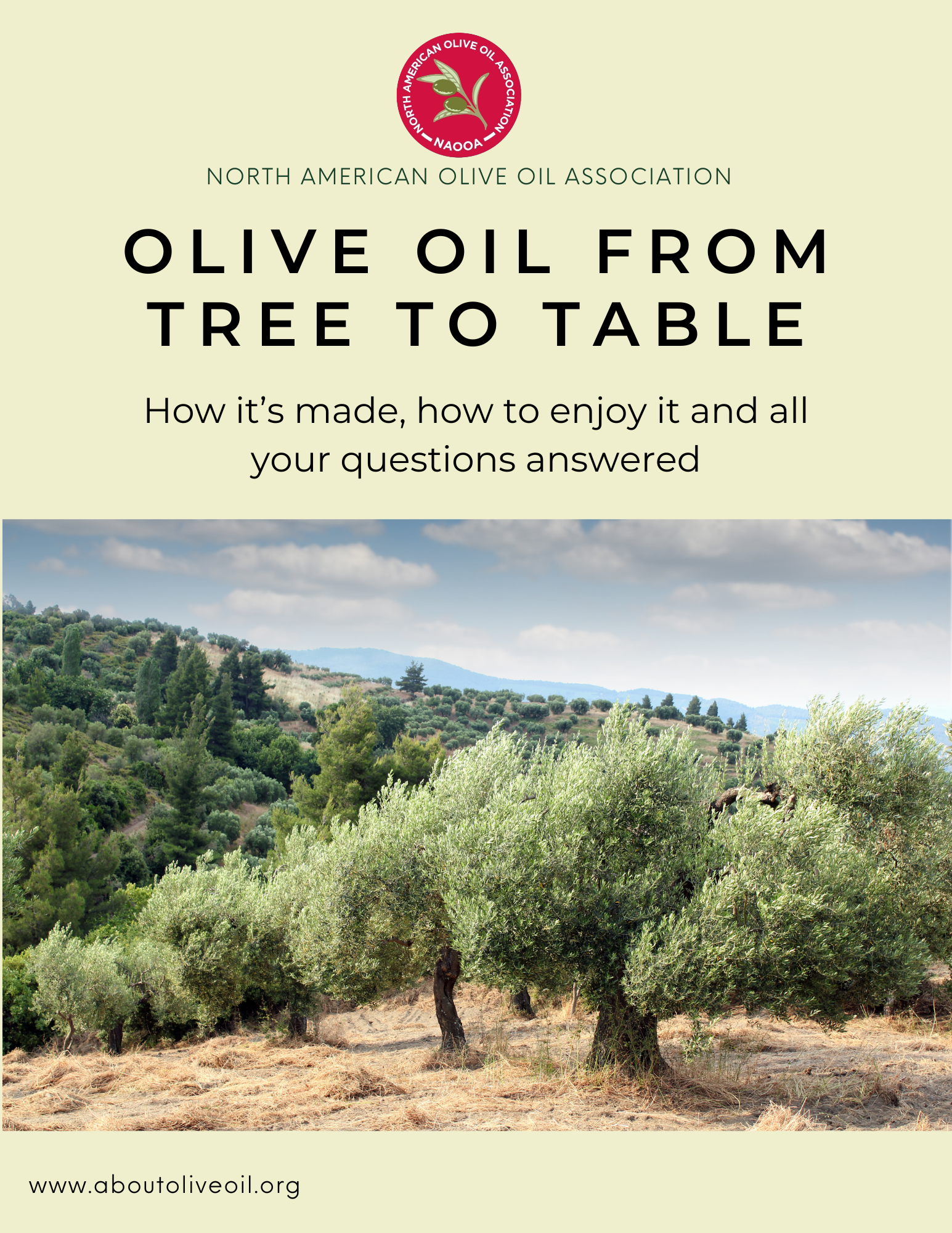Today, the American Olive Oil Producers Association (AOOPA), North American Olive Oil Association (NAOOA) and Deoleo, the world's largest olive oil producer, submitted a joint citizen petition to the U.S. Food and Drug Administration (FDA) to adopt enforceable, science-based olive oil standards.
The petition puts forward clear definitions for olive oil grades – extra virgin, virgin, and olive oil – that will help American consumers better understand and have confidence in the quality and authenticity of the olive oil they buy. This clarity will also lead to a better grasp of nutrition benefits at different price points.
For the past two years, AOOPA, Deoleo and NAOOA have collaborated on determining more stringent olive oil grading and labeling standards that will benefit everyone. The new standards, which the FDA would be empowered to enforce following a final ruling and public comment period, would mark the first-time the federal government has adopted mandatory regulations for olive oil, and it’s a key step toward ensuring a more honest, fair, and competitive industry.
“For the first time, top-selling brands such as California Olive Ranch, Pompeian, Bertolli, Filippo Berio, Colavita, Star, Cobram Estate and other major producers have joined forces to drive standards that will help eliminate consumer confusion around one of the healthiest and most delicious foods they can eat. Stricter labeling practices will allow consumers to feel confident that the olive oil they buy will deliver the quality, value, and health benefits they expect,” said NAOOA Chairman Marco de Ceglie.
If approved by the FDA, the standards would give growers, producers, and bottlers an edge in a highly competitive market, and it will instate practices that drive a more trustworthy industry. The current joint petition responds to FDA’s request for a robust and unified effort from the industry, and it addresses all relevant points of reference.
By calling for strict labeling and quality standards, the industry can ensure consumers feel secure in what they are buying and, by extension, the nutrition and health benefits their olive oil delivers. This is important because scientific research has shown certain types of fats are a vital part of a balanced diet, and olive oil is high in heart-healthy monounsaturated fats. It is also rich in polyphenols, which are antioxidants that help decrease the risk of heart disease.
Olive oil may even have brain health benefits and contain cancer-fighting properties.
In addition, olive oil has proven benefits for those at risk of diabetes. Currently, cases of diabetes and obesity are on the rise, with nearly one in 10 of adults between 20 and 70 diagnosed as diabetic. In a first-of-its-kind study, a research team at Virginia Tech has determined the properties of olive oil that make it the lowest-cost way to reduce diabetes risks and related weight issues. The team discovered that oleuropein, a compound found naturally in olive oil, boosts insulin levels, supporting better control of metabolism and blood sugar levels.
Previous citizen petitions for Standards of Identity have resulted in the adoption of regulations for a variety of food products. The parties submitting this joint petition hope it will lead to a standardized approach that benefits consumers and the industry alike.
“American olive oil producers are committed to providing consumers with high-quality extra virgin olive oil. This proposed olive oil Standard of Identity ensures consumers can trust that when they reach for a bottle of extra virgin or any grade of olive oil that it is honestly labeled. US olive oil farmers know that consumers’ trust in the olive oil they purchase is paramount to
increasing demand, which will spur investment and growth in the American olive oil industry,” stated Jim Lipman, Chairman of American Olive Oil Producers Association.
“The new SOI being proposed will provide clarity for consumers and greater legal certainty for manufacturers,” continued NAOOA Chairman de Ceglie. “It will also help continue to differentiate olive oils from other less healthy cooking oils. All grades of olive oil have potential health benefits, but generally the more flavor, the more benefits. The SOI will empower consumers to choose the olive oils that are right for their budget, their taste preferences, and their desire to maximize health benefits.”
"We believe we have a duty to ensure consumers feel confident about their olive oil. At Deoleo, and for our leading brands such as Bertolli and Carapelli, quality is in our DNA, and we want to share that commitment to quality with our customers. If approved by the FDA, our petition for more robust standards will represent a key step in empowering US consumers with transparent, honest labeling." concluded Ignacio Silva, Chairman and CEO of Deoleo.
AOOPA
The American Olive Oil Producers Association is the unified voice for American olive oil producers and their state associations. It advocates for fair trade rules and market access, supporting industry growth and promoting quality.
NAOOA
The North American Olive Oil Association (NAOOA) established in 1989, is a trade association of 78 companies interested in the marketing of olive oils in the U.S., including but not limited to producers, packagers, and importers of olive oil, as well as laboratories and export associations. NAOOA members hail from 11 countries, including all the major olive oil-producing countries.
DEOLEO
Deoleo is a Spanish multinational food company and the world's top-selling olive oil producer with a presence in more than 60 countries on all five continents. It has factories in Spain and Italy and sales offices in 15 countries. Deoleo has leading global brands, such as Bertolli, the best-selling brand in the United States, and Carapelli as well as the Spanish brands Carbonell, Hojiblanca and Koipe.





